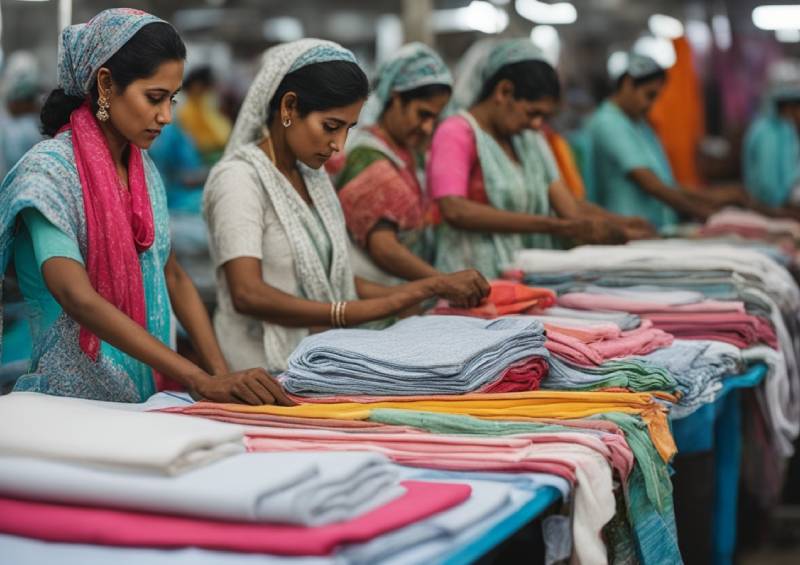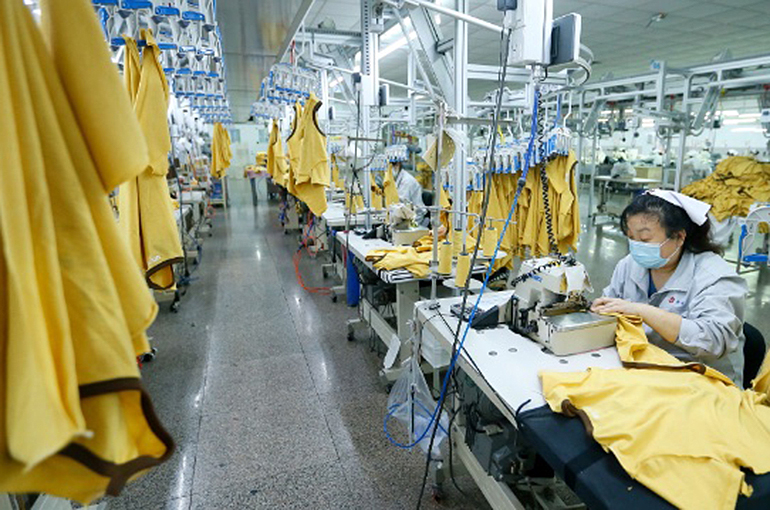 Fashion laws across West Europe and the US have been transforming for the last five years. The new labeling laws and marketing regulations in the US warn buyers to be aware of the quality and sustainability of purchases. They also direct brands to be transparent about the fiber content in their garments and source destination.
Fashion laws across West Europe and the US have been transforming for the last five years. The new labeling laws and marketing regulations in the US warn buyers to be aware of the quality and sustainability of purchases. They also direct brands to be transparent about the fiber content in their garments and source destination.
Earlier, fashion laws in the US addressed only specific issues. They did not address issues related to the environment or social justice. For instance, no protection was offered against environmental and labor violations committed by brands in production facilities located overseas. This encouraged brands to send textiles or unfinished goods to different countries to avoid unfavorable quotas and tariffs. Even within the US, brands often subcontracted cut and sew work to companies that exploited unregistered immigrant laborers.
Young consumers accelerate demand for transparency
However, as per a Fashion Law report, a new young consumer group, making up approximately 20 per cent of the population, is rising in the US since the last five years. These consumers are not only well-educated but also aware of all environmental and social issues. They use digital platforms to urge brands and governments across the US and the world to be environmentally and socially responsible, and ensure transparency in operations.
last five years. These consumers are not only well-educated but also aware of all environmental and social issues. They use digital platforms to urge brands and governments across the US and the world to be environmentally and socially responsible, and ensure transparency in operations.
Governments across Europe and the US are introducing new initiatives to reform fashion laws in their respective countries. For instance, established in 2013, the Accord agreement helped Bangladesh bring about a certain level of transparency in the operations of Western fashion brands’ in the country. The Accord was extended last week and is seen as one of fashion’s most successful efforts to protect garment workers, at risk.
Eyeing long-term environmental goals
The EU plans to implement new reporting and corporate governance laws in continuation with the Sustainable Corporate Governance Initiative. The laws would require brands operating in the EU to shift their goals from short-term financial gains to long-term benefits including environment, human rights, and social impacts along their supply chains. Adopted by the European Parliament in March 2021, the laws also expand the definition of stakeholders to include employers, environmental organizations, and organizations along the company’s supply chain.
The French government has also passed a law that directs brands to include a ‘carbon label’ on their garments and textile informing consumers about the environmental impact of their purchases. Meanwhile, Germany passed the ‘green button’ label law in June that requires companies to meet a minimum of 26 social and environmental standards – including supply chain reporting and responsibility points – in order to use the label.
On the other hand, the US is in the process of passing the California Garment Worker’s Act, commonly known as SB62 to eliminate the long-employed piece-rate wage system that provides easy avenues for wage theft. The Act is being supported by fashion brands including Reformation, Saitex, Eileen Fisher, and Mara Hoffman, etc.
Rise of B corps in the US
The United Nation’s latest climate change report urges brands to accelerate their sustainability initiatives. The report calls for a new set of regulations to address these issues on long-term basis. Compliance to these regulations would be possible with the rise of new B corporations that exist in 37 states in the US. Though the fashion industry has time and again met consumers’ innovation and creativity needs, it thrives on constant change and newness. The emerging new set of consumers seeks nothing less than the best from the industry.











